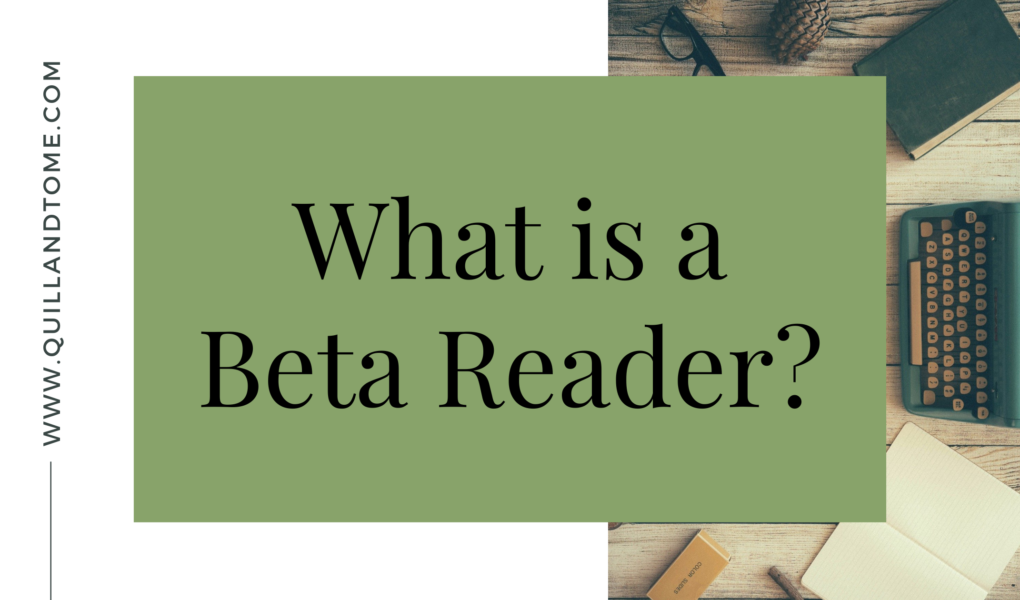What is a Beta Reader and Why Do You Need One?
As a writer, you might have come across the term ‘beta reader’ in blog posts and on social media. However, you may not know exactly what a beta reader is or what they do.
Wikipedia defines a ‘beta reader’ as a non-professional reader who reads a work with the intention of providing suggestions to improve the story. This definition bugs me a little. While beta readers are not necessarily professionally trained or have a degree in creative writing, this definition almost puts them in a not-so-good light. A good beta reader can actually provide some much-needed value and input, regardless if they have that degree or not.
So what exactly is a beta reader?
A beta reader is someone who reads the story as a reader before the manuscript goes to the editor. However, do not give them your very first draft. Polish it up a little and self-edit it as much as possible. They will often catch plot holes and typos, but the main purpose of a beta reader is to make sure the story flows and is easy to read.
Most often, beta reading is done for fiction novels, but it can be done for any kind of written work. Actually, we would advise you send any manuscript that you intend to publish to a beta reader. Eventually, you want people to read it, and a beta reader will help to make sure it is readable. Having someone else go over your manuscript before you send it to the editor, can drastically reduce the editing costs since there won’t be as much editing needed.
Who should you get to beta read your book?
Beta readers are ideally going to be someone in your target audience or who frequently reads books in your genre. This gives them the ability to know what works in the genre, and what doesn’t.
You can always ask your family and friends to beta read your book, however, they may have a biased opinion. To them, everything you create is fantastic! Or, they are reading it just because you asked, not because they want to read it.
Reading communities can be great places to find a beta reader. Ask people on Goodreads, Facebook groups, or on your own social media platforms by posting if anyone would be interested in reviewing your work.
What do beta readers give the author?
Most beta readers will give the author feedback that will help them improve the story. Depending on the level of work a beta reader puts into it, the feedback can range from a few sentences to a few pages.
Some beta readers will just tell you they liked it or didn’t like it, and there is a downside to this kind of feedback. What didn’t they like? WHY didn’t they like it? What would make them like it? Other beta readers will send pages of feedback, including comments, questions, and suggestions on plot, character, setting, dialogue, grammar, you name it. The downside to this is that it can become very overwhelming if not controlled.
There are questions that a beta reader should answer in order to provide valuable feedback. You can always send a set of questions along with your manuscript that you would like the beta readers to answer.
How many beta readers do you need?
It is always best to have a few people to beta read your story. A small, odd number, like three, is a perfect number of beta readers. This way you get a variety of opinions without having so many you get overwhelmed. They are supposed to help you, after all, not hinder you!
Too many opinions can actually be worse than having none at all. It can leave you confused and frustrated about what needs to be improved. Three opinions can also be a tiebreaker. If two of your beta readers have opposite opinions, you can turn to the third to help you decide which piece of advice to follow.
What is the difference between a beta reader and an ARC reader?
A beta reader looks over your manuscript before it goes to the editor. This takes place in the revision stage. They will read your book as a reader, helping you find plot holes and fix inconsistencies. Occasionally, they will also point out errors in your grammar, sentence structure, and punctuation.
An ARC reader is an Advanced Review Copy-reader. They receive a copy of your book to read after the editing process, but before proofreading and publishing, in exchange for an honest review, usually on Amazon or Goodreads. Many self-published authors skip this step, but having an ARC reader can only help you. They are one of the last people to see your manuscript before you publish it!!
Both beta and ARC readers are important people to have on your launch team. They can help you reduce the cost of editing, set you up with reviews as soon as it is available for distribution, and make your book the best it can be, which could also help it sell even better!
How is beta reading different than editing?
Depending on the level of beta reading offered, it can be much closer to editing than the reader just saying they liked it. Many beta readers will provide several pages of feedback, which could almost be a lighter version of developmental editing.
A beta reader could be a member of a re-enactment group to check the accuracy of your historical fiction novel. They could also be your teenage neighbor who will read your manuscript and tell you if the story moves fast enough or if it lags in certain places.
An editor is someone who usually has some kind of formal training and will go through your manuscript with a fine-toothed comb focusing more on the technical aspect of your writing.
There are several kinds of editors, and beta readers can technically be classified as one, but so can critique partners and ARC readers. Then there are line editors, copy editors, content editors, developmental editors, acquisition editors, and proofreaders. Each kind of editor has their own purpose, and depending on your manuscript, you may only need some, or you may need all of them.
Editing is one of the most expensive parts of the publication process, so having as much done through beta reading, critique partners, and ARC readers can really help you save some money in the long run.
CHECK OUT THE WRITER’S PLANNER BY QUILL AND TOME!
Get the planner and organize your life and your writing!
What you can find inside:
- Plenty of writing space in a vertical layout
- Undated weekly and monthly pages you can start using any day of the year
- Reading and Writing Trackers
- Writing Tips
- and so much more!
Do beta readers get paid?
Many beta readers will offer their services for a free copy of your book and their name in the acknowledgments. However, others will charge a small fee, usually around $0.001 per word. This works out to $1 per 1,000 words. So if your manuscript is 80,000 words long, you would pay a beta reader $80.
This is significantly cheaper than going straight to an editor. The beta reader will catch a lot of the things an editor would spend time on, and if you have already fixed these things, the editor doesn’t spend time on it and therefore doesn’t charge you for it.
There are advantages and disadvantages to both. A person who beta reads your manuscript for free may not put in the same amount of effort than one who you paid. However, they are free, which in the self-publishing world, things can get pretty pricey, so this could be a good advantage.
Paid beta readers may take your manuscript a little more seriously. Everyone has to make an income, so you shouldn’t automatically disregard the ones who charge a fee. They will often provide more in-depth feedback, which can potentially mirror developmental or content editing.
Over To You
Beta readers are an integral part of your launch team. You are writing a book for the purpose of publishing it, so wouldn’t you want it to be the best it can be? Beta readers can help you do this. They will read your book as a reader before you even get to the editing process, and make your book more successful in the long run. Keep a list of all your beta readers’ contact information and make sure to thank them when you finally do publish your book!
Do you have any other advice on hiring a beta reader? Let us know in the comments!
If you enjoyed this content and are interested in fitting writing into your daily life, DOWNLOAD THE FREE WORKBOOK! Read our monthly newsletter, full of valuable writing advice and be the first to know when we release a new product or book.








[…] You can check out this post on beta readers, more on what they do, and why you need one […]